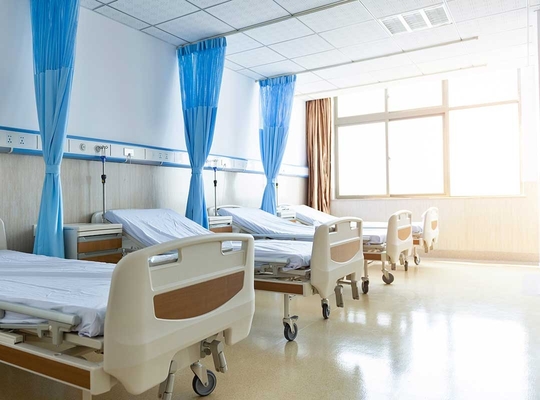You are here
Flanders declares a public health emergency

At the proposal of Flemish Minister of Justice Zuhal Demir, the Flemish Government has declared a public health emergency. The figures are dramatic. “We are now making it possible to set up additional capacity very quickly so that no valuable time is lost,” Minister Zuhal Demir says.
By declaring a civil emergency, it is possible to provide additional health infrastructure immediately without a permit. “There are currently over 6,000 coronavirus patients in hospitals, with over 1,000 of them in intensive care. We are now making it possible, with the help of temporary infrastructures and units, or by commissioning vacant buildings, to realise extra capacity very quickly, without any obstacles, so that no valuable time is lost,” the Minister says.
Hospital capacity under severe pressure
The figures and the measures taken show that the current resurgence of the COVID-19 epidemic is having a severe impact on the existing health infrastructure. The capacity of hospitals, care institutions and laboratories is under great pressure and the demand for extra (temporary) facilities is in danger of escalating. It is also essential that options are found for additional facilities for the rapid production of medicines, vaccines, critical medical equipment and products and materials to carry out medical tests to cope with this imminent civil emergency.
Building additional health infrastructure without a permit
The framework for the civil emergency was drawn up at the start of the coronavirus crisis by Flemish Environment Minister Zuhal Demir. This allows the Flemish Government to declare an emergency by a simple decision, and to provide an exemption from an environmental permit for all possible health infrastructure in an acute crisis situation. That was previously impossible. Earlier this year, during the first civil emergency, a facility was built between two hospital buildings in Aalst without a permit to rapidly deploy a new Intensive Care department. There was a similar initiative taken at the Sint Maria hospital in Halle. Additional pre-triage and triage stations were also set up throughout Flanders without permits. The additional production of hand sanitiser was also started by no less than three companies through the exemption: Janssen Pharmaceutica in Geel, Konings nv in Zonhoven and BASF Antwerpen.

